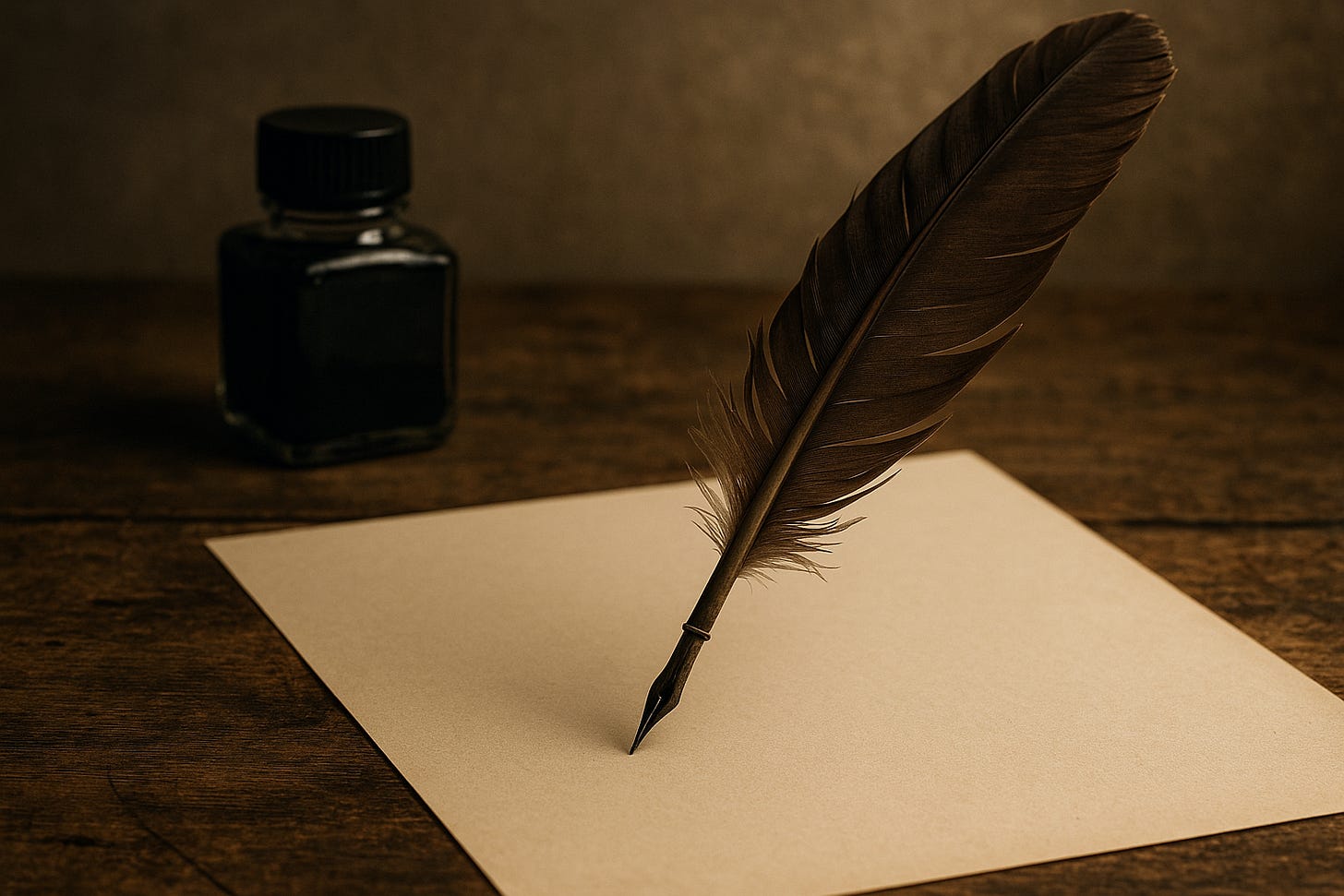The Urge to Write
Exploring the Deep-Rooted Reasons Writers Put Pen to Paper—Even When No One’s Watching
I recently read an article about how AI changes how students approach schoolwork. With tools that generate essays in seconds, many are skipping the learning process altogether. It made me stop and ask a timeless question: Why write?
While answers vary, I believe it comes down to this: we write because we have to.
Simply put:
We write for ourselves.
To me, that’s the main reason, because we have to. It’s the same reason musicians play music: they have to. The activity brings them joy, and affixes to their soul in ways that are hard to explain. It’s why sculptors sculpt, why artists paint or draw.
Writing has been a human activity for thousands of years, and there are many motivations for connecting words coherently. Many write to connect with others, spread influence, or better understand themselves.
Many writers write to make money. We write to learn—as mentioned a moment ago, writing about something is a great way to learn about it. We write to see if we can pull off something that we might otherwise think improbable or perhaps even impossible.
Some nonfiction authors write a second or third book to expand on their first works. Some authors create fictional characters that inspire an array of stories. Some writers create main characters for works of fiction, who inspire secondary characters that then become main characters in their own novels.
Some writers write because they wouldn’t feel complete if they didn't. Many are compelled to write and couldn’t stop themselves if they wanted to.
I’ve heard stories about famous writers who wrote every single day for eight hours and then went about their day. Of course, those are the ones who sold lots of books, so those are the stories that get out.
But I also hear stories from unknown writers on Instagram, Threads, BlueSky, or other social media sites who write for an hour after their kids are in bed, or during a break at a 12-hour shift at a hospital, or when they wake up early before the rest of the household is up so that they can write in peace.
Some write to be known, so that others can read their tales, so that others can be entertained. Some write because it’s become extremely lucrative for them and people keep buying their stuff, so why stop? It’s their job.
Some people write, but don’t have a big inclination to have their work published. A handful of writers come to mind – Emily Dickinson and Franz Kafka – who didn’t publish anything of note during their lives, but are now regarded as great writers. Kafka instructed his friend Max Brod to burn his unpublished manuscripts after he died, but instead, Brod had them published. Dickenson had less than a dozen of her 1,800 poems published during her lifetime, which were heavily edited. Her first real collection didn’t appear until four years after her death.
Often, writing is a journey of self-discovery. Journaling, for example, is a great way to explore what’s going on in your mind and life, but it's just regularly putting down the events of your daily life. I’ve done that a couple of times in my life, and while I thought the activity was worthwhile at the time, I’ve barely glanced at those notebooks since.
Good writing can shape public opinion. Some examples come to mind, such as Harriet Beecher Stowe’s “Uncle Tom’s Cabin,” which galvanized the abolition movement in the US. Abraham Lincoln reputedly said Stowe was “the little lady who started this great war.”
Upton Sinclair’s “The Jungle,” a novel about the conditions in the meatpacking industry and the related corruption in government and business, helped lead to reform in the industry. Author Jack London called the novel the ‘Uncle Tom’s Cabin’ of wage slavery, as it depicted working-class poverty, harsh living and working conditions, leading to hopelessness and powerlessness among those working in the industry.
In the end, there are as many reasons to write as there are writers. Some write to inform, some to entertain, some to advocate for change. But behind all those motivations is one unifying truth: most of us write because we must. Writing is how we make sense of the world—and of ourselves.






Your post most certainly covered all of the reasons why I write—and those reasons vary over time and temperament. I have a need to release and process emotion through writing. As a newspaper correspondent I told other people's stories which satisfied my need to contribute to the community and to be published. I recently proofread my already edited novel for the third time feeling comfortable to let it go into the world. Now I feel compelled to put the new story in my head into google docs and experience the emotional rollercoaster all over again.